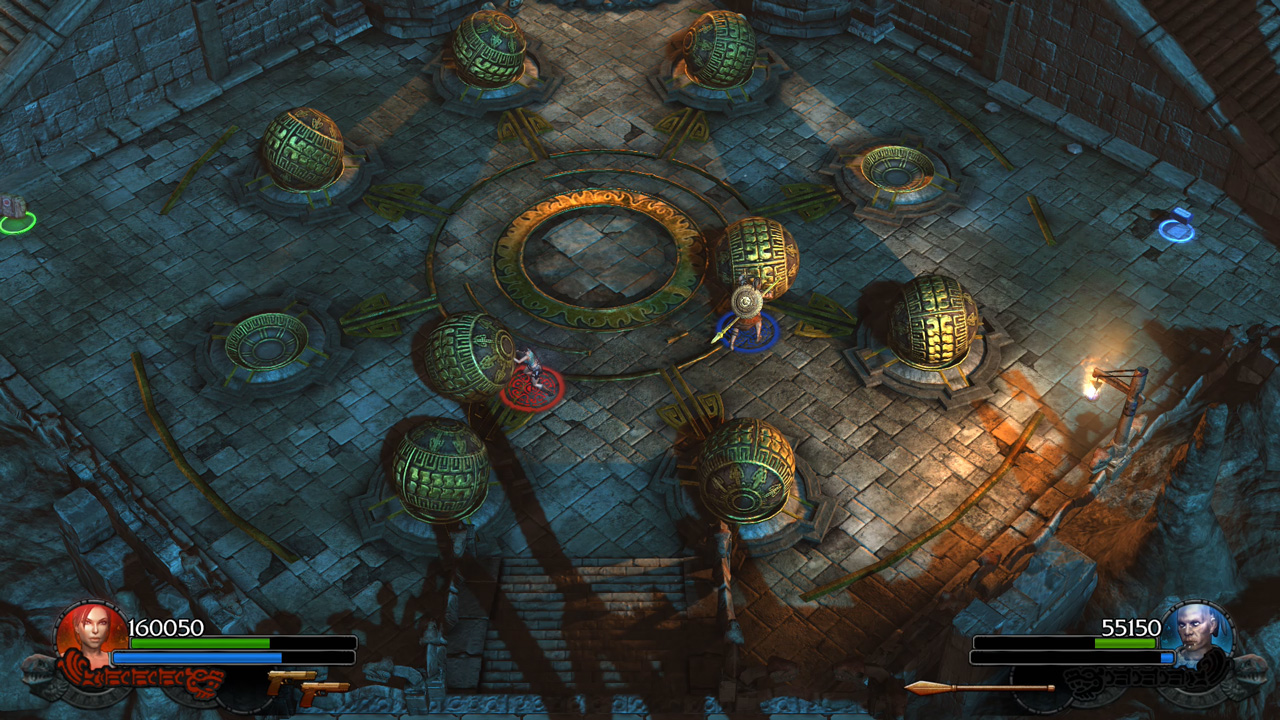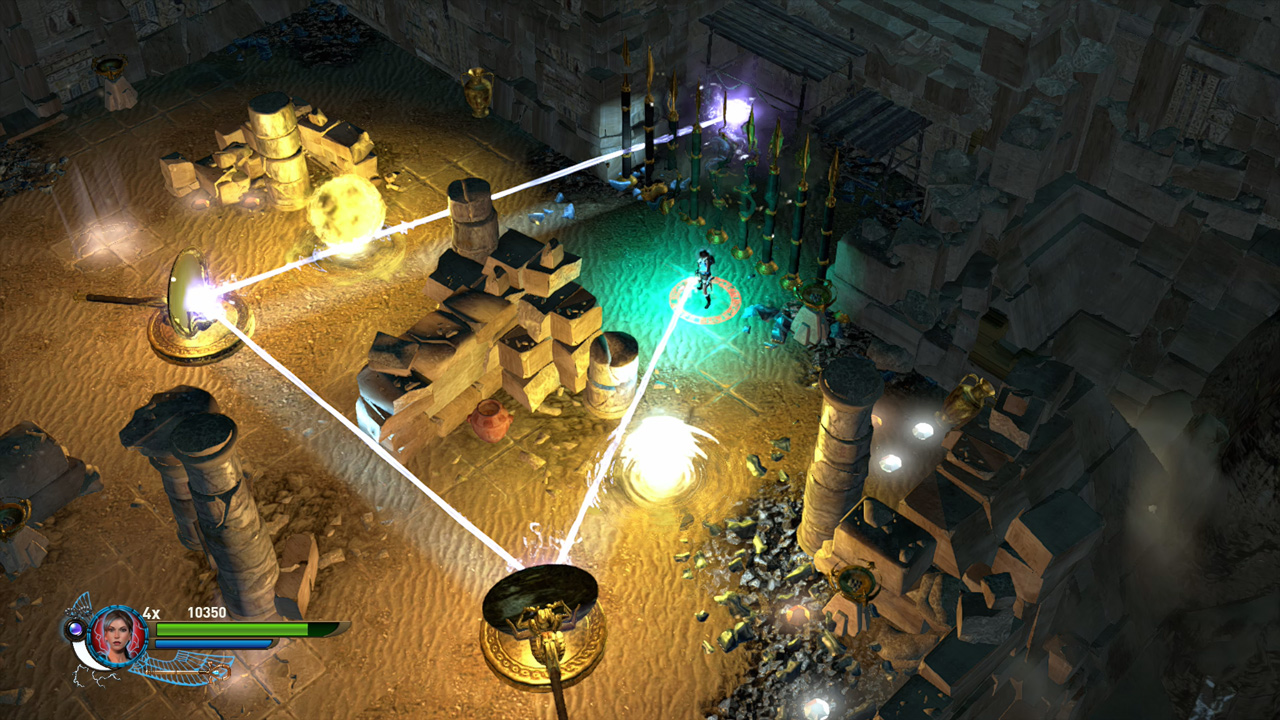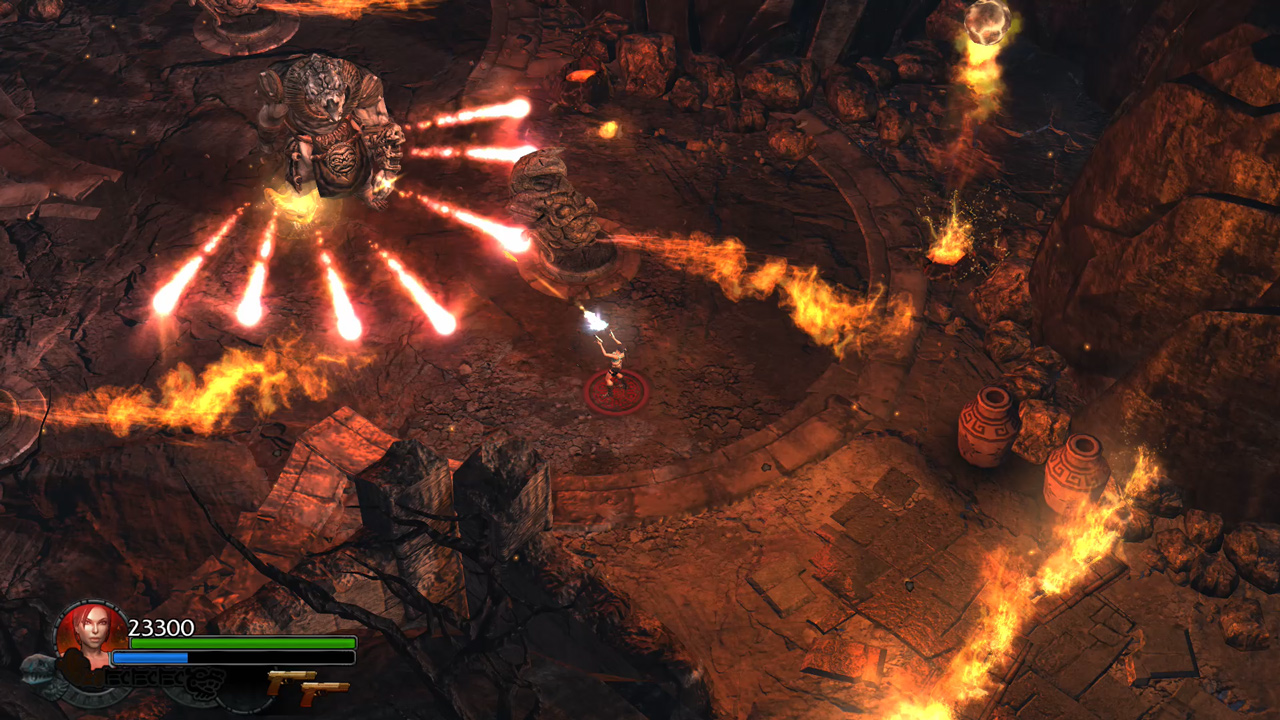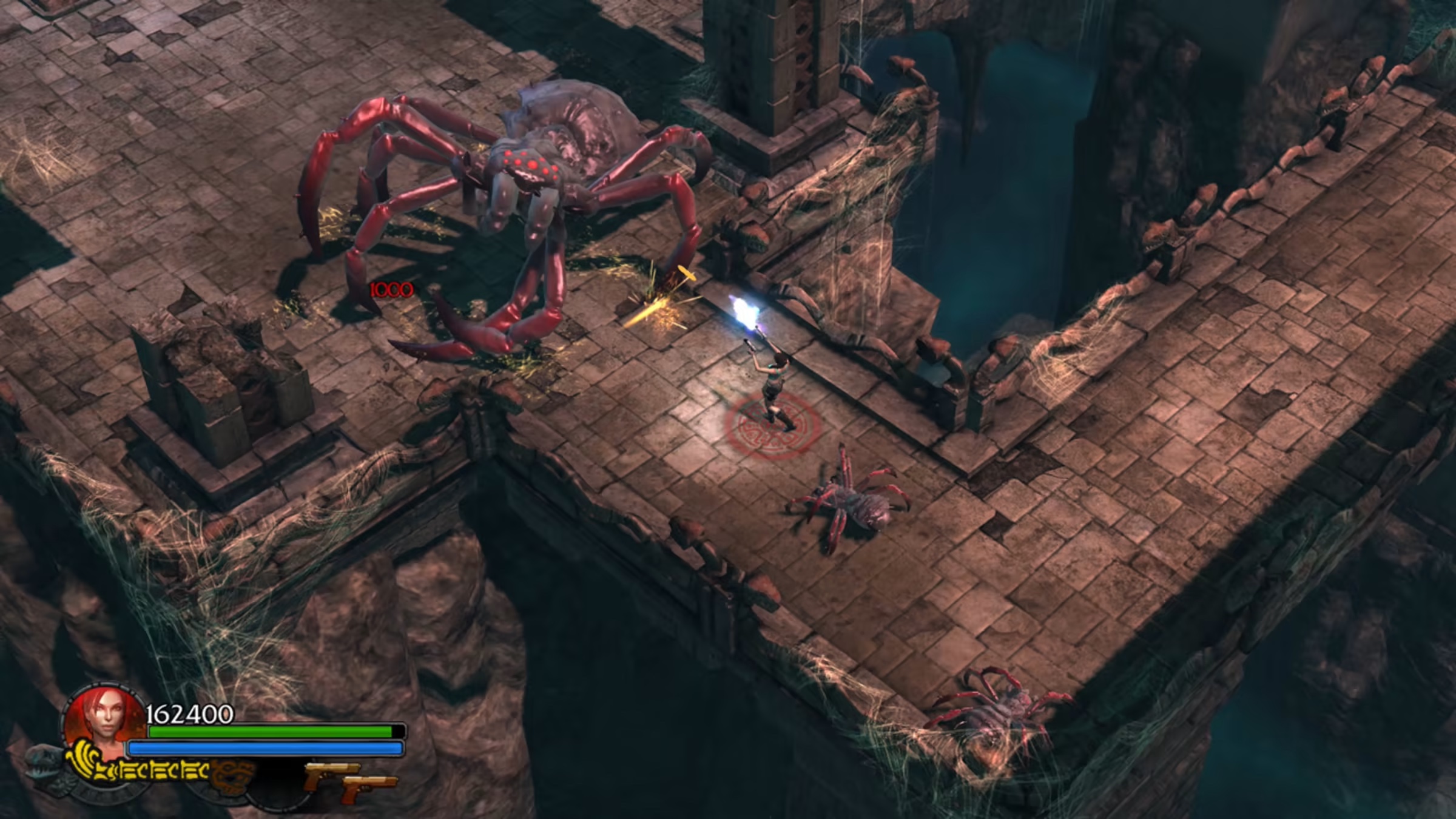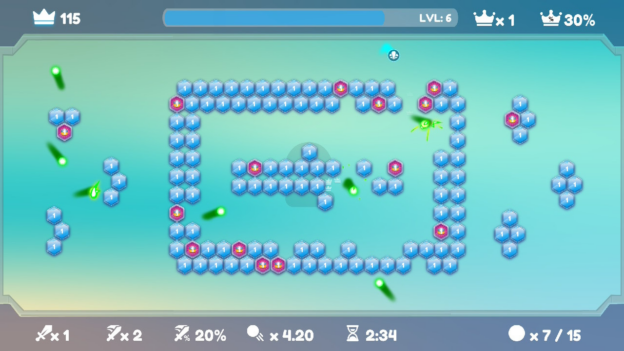Review: The Lara Croft Collection (Nintendo Switch)
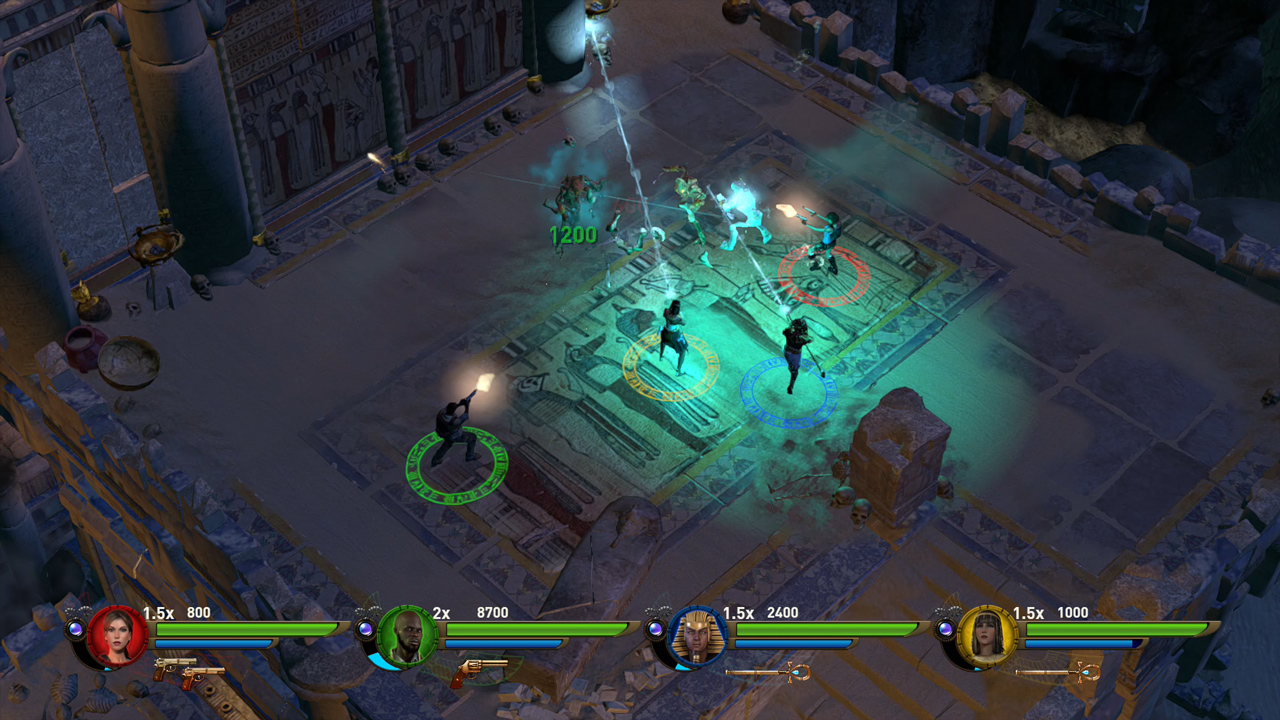
There have been no Tomb Raider games released for the Nintendo Switch. The last to hit a Nintendo device was Tomb Raider: Underworld, which was released for both the Nintendo DS and Wii in 2008. That’s changed, kind of, now that Feral Interactive has published The Lara Croft Collection.
I say “kind of,” because these aren’t actually Tomb Raider brand games. They feature Lara Croft, but they aren’t set up in the typical third-person action style of the classic Tomb Raider games. Instead, you get a top-down, isometric view of the action more akin to a dungeon crawler such as Diablo or Nine Parchments. More importantly, both games in the collection are meant to be played co-op; 2010’s Lara Croft and the Guardian of Light supports two-player local multiplayer, while Lara Croft and the Temple of Osiris supports up to four local players.
In this way, both games excel. You can play either of them on your own, but they’re not nearly as fun. Cohesively working with a teammate or teammates to solve puzzles and dodge traps is much more thrilling than stuttering through them on your own. Enemy difficulty (amount, really) is scaled based on the number of players. So, you can get Lara through it by yourself, but she’d prefer some company. Note, however, that there is no online multiplayer option.
Each game comes with a perfunctory story that provides little more than a setting and incentive. In Lara Croft and the Guardian of Light, the typical unscrupulous bad guy unwittingly unleashes Xolotl, the Keeper of Darkness. Now, Lara and (if you’re going multiplayer) the ancient Mayan warrior Totec are left to capture him before dawn. Of course, you can’t unleash the Keeper of Darkness without also freeing his countless minions, so there are plenty of monstrous beasts for Lara and Totec to fight as they chase Xolotl through numerous tombs and ruins.
In Lara Croft and the Temple of Osiris, Lara journeys to Egypt to face off against an evil god named Set. Our hero has more companions this time, joined by a treasure hunter, Carter Bell, and a couple of handy gods: Isis and Horus.
Honestly, neither game requires more than a setup. These are meant to feel like co-op arcade action games (does everyone remember Gauntlet?) that quickly dump you into the frenetic action and keep you there. Both succeed to varying degrees.
The pacing in both games is great. The bulk of the gameplay centers around getting from here to there, and the challenge of doing so is largely determined by the rewards at the other end. All of the characters have different abilities, so players will need to work together to overcome obstacles. Lara, for example, has a grappling hook she can attach to objects to cross caverns or to pull friends up ledges. Totec has a shield that can allow safe passage through arrow traps or provide Lara a higher platform from which to jump. When entering tombs to discover artifacts, the game slows down to provide players time to work through the environmental puzzles blocking the treasure: spiked platforms, trigger traps, out of reach ledges, etc.
Getting to most places, however, involves fighting. Weapons (guns, mostly) are acquired as you progress through the game, and can be assigned for use via the d-pad. Certain weapons are more effective against certain enemies, of course, but only the defaults have unlimited ammo. Thankfully, both games provide plenty of ammunition pick-ups and health packs/areas.
Combat plays out like a twin-stick shooter. Players move their character with the Joy-Con’s L-stick, aim with the R-stick, and hold down ZR to fire. Bombs can be dropped and detonated with the Y button. And characters have the ability to dodge or roll away from enemy attacks or traps. There’s almost always something to shoot at, and there are various times when hordes of enemies will be unleashed in quick succession.
Between combat and puzzle solving, the multiple levels seem to go by a lot faster than they do. My son and I were often surprised it took us over half an hour to complete a level when it felt like half that. It was somewhat embarrassing, then, to see that one of the challenges was to complete those levels in under five minutes.
Those challenges are important, as they provide most of the incentive for multiple playthroughs. You’re highly unlikely to beat the time challenges on your first run, and certainly not while attempting to retrieve all artifacts. For example, one challenge in a level of The Guardian of Light is to collect all 10 red skulls, one of which requires you to enter a river to reach it. That same level also challenges you to cross the river without entering it. Does that require two playthroughs or is there a solution we just couldn’t find? The replayability is a welcome factor, as neither game is terribly long; The Guardian of Light can be completed in 7 to 10 hours, while The Temple of Osiris is even shorter at 5 to 8 hours.
Those times are about right for a modern playthrough of games released in the early ’10s. Feral Interactive hasn’t enhanced either title, after all. We’re getting these games as they were released, but I think that’s fine in this case. The arcade action and puzzle solving hold up really well, and are perfect for taking on one or two levels at a time. The controls are simple and precise. The graphics are a bit dated, but nicely detailed, and hold up quite well on the larger screen. Elements get lost in handheld mode, but the preference for multiplayer means you shouldn’t be playing on the Switch screen anyway. The graphics perform well whichever screen you choose.
The Temple of Osiris does suffer from the occasional hiccup and some blurriness, but rarely to the point that it impacts gameplay.
These games serve as a welcome Switch debut for Lara Croft. Action gamers will have a blast if they have a buddy or three on hand to play with. The Lara Croft Collection may not be the Tomb Raider you know, but it should make you remember what you loved about the original games.

